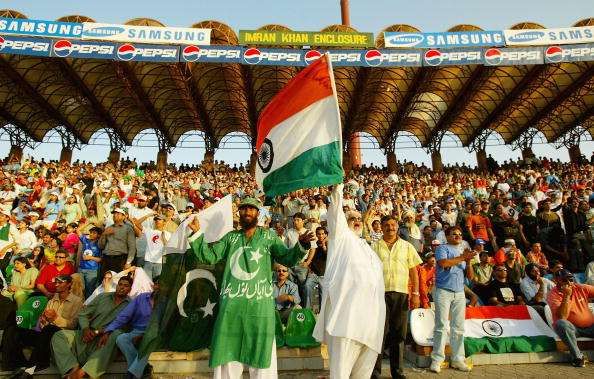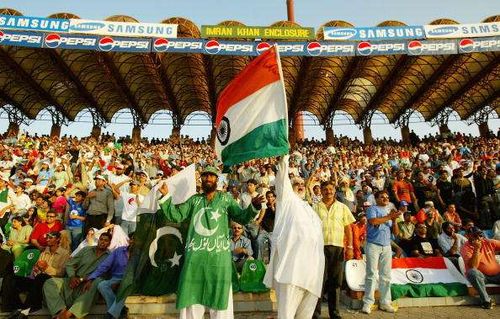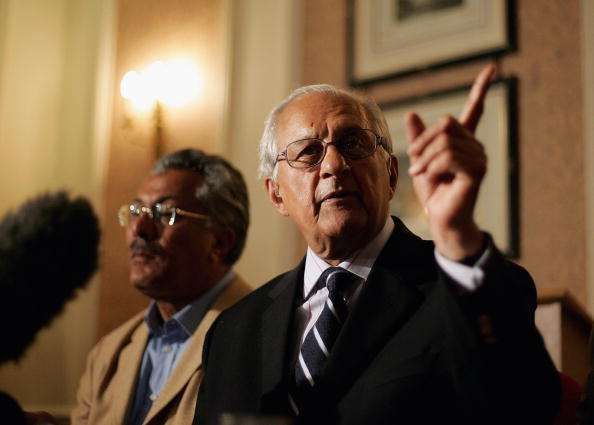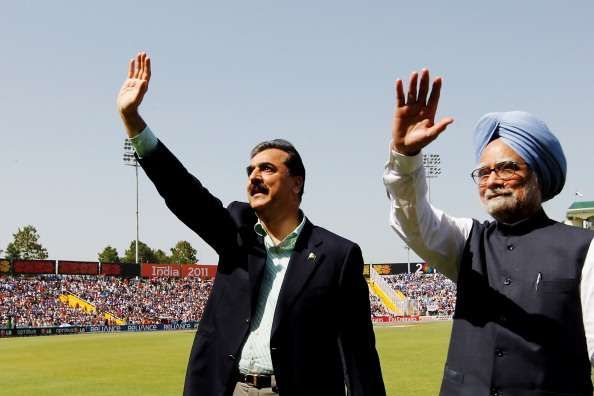
The dismal state of India-Pakistan cricketing relations

The story goes that the chef at Jaipur’s Rambagh palace had forty baby lambs slaughtered the day before Pakistan’s military dictator and arguably the most hated man in his country was to be hosted as part of his trip to India to enjoy a game of cricket. Paying true homage to Mughlai culinary traditions, Safed Maas and Akbari Ran were on the menu as General Zia-ul-Haq rubbed shoulders with the likes of Lala Amarnath and Bishan Singh Bedi.
Despised as he is for his fundamentalist drive that allegedly destroyed Pakistan’s social fabric, in giddily accepting the BCCI’s invitation to watch a match between India at Pakistan at the Sawai Mansingh Stadium, Zia exercised a tactful maneuver of “cricket diplomacy”. The trip proved to be a major public relations coup for the General as he met with Rajiv Gandhi and successfully managed to defuse tensions.
Thirty years later, the hegemonic behemoth of world cricket, the BCCI is displaying what Osman Samiuddin succinctly called “playground rationalism-don’t want to play, won’t say why” in its relations with Pakistan.
The only reason Pakistan had agreed to the BCCI, ECB and Cricket Australia’s hijacking of international cricket’s revenue was the fact that India agreed to play five series with Pakistan in the coming years. What followed was a frustrating comedy of errors.
Also Read: Is Cricket heading in the right direction?
Initially, the BCCI waited for months to approach the Indian government to seek permission for the series. Once that got out of the way, issues were raised with having the UAE as a venue. Firstly, the BCCI had reservations with Pakistan’s host broadcaster Ten Sports.
After that was resolved, there were murmurings about match-fixing concerns in the UAE. The irony is palpable considering the International Cricket Council, of which Shashank Manohar now finds himself Chairman, houses itself in the UAE after shifting its headquarters from its colonial womb of England.
Manohar invited Shaharyar Khan to Mumbai to resolve the issue as reports emerged that Sri Lanka was being considered as a “home” venue for Pakistan. Lo and behold members of the Shiv Sena party attacked the BCCI headquarters at the Wankhede and Shaharyar Khan was left waiting in his hotel with no communication from Mr. Manohar.
It was a slap in the face of the PCB and the Pakistani media took to the chairman and forced him to produce his original invitation letter in order to prove he wasn’t there uninvited. Negotiations fell through and there was to be no shortened series, let alone a Test series.
There is only so much the Pakistani board could have done. The BCCI is all powerful and rightfully so. The advent of cable television and India’s vast market size meant that the original Anglo-Australian dominance of the game was going to be overtaken. No one could mess with the BCCI.
Chief Executive of the Federation of International Cricketer’s Association Tim May had to learn the hard way as he took a stand against the corrupt N Srinivasan and was forced off his position. Similarly, in a childish display of disdain, Srinivasan shortened India’s series against South Africa to show his displeasure at Haroon Lorgat being elected chairman of Cricket South Africa.

Many in the cricketing world were confused. Why didn’t the BCCI want to play? Surely there was a large amount of money to be made off of any match-up with Pakistan. It was later revealed that the real reason was that the ruling government did not want to alienate its allies in an upcoming state election by appearing to be too friendly with Pakistan in agreeing to play a series.
The animosity between both sides is deep-seated and some people in India are of the view that no cricket should be played as long as there are outstanding issues. Frankly, this makes any cricket in the future impossible as well in my opinion.
The PCB was embarrassed; it had tried desperately to get India to agree on a series at a neutral venue. Back home at the Gaddafi, Shaharyar Khan said the Pakistan cricket had survived this long without playing with India and would continue to do so.
But why was cricket being held hostage by petty politics? Surely the sport would help to de-escalate tensions if anything. The frustration was deafening.
Also Read: 5 reasons why the India-Pakistan cricket series is unable to turn into a reality
Fast forward two months and PCB flexed a bit of its commercial by stepping into the lucrative world of domestic T20 leagues with the Pakistan Super League. Test cricket was on the backburner as the Asia Cup, PSL, World T20 and IPL, all happened in quick succession.
Yet again, Pakistani players were excluded from the IPL. Ever since the Mumbai attacks, no Pakistani players have been picked up at the auctions and rightfully so. However, the IPL already enjoys the mediocre commentary of Ramiz Raja and Wasim Akram’s coaching expertise. One can only imagine what the tournament could do with the likes of Shahid Afridi and Mohammad Aamir in its ranks.
They would be sure-shot superstars as Shoaib Akhtar’s stint with KKR proved in 2008. One also wonders how a Test series between India and Pakistan would pan out today. No cricketer worth his salt would dispute the status of Test cricket as the purest form of cricket.
The wily spin of Ravi Ashwin against the likes of Misbah-ul-Haq. Virat Kohli against the golden armed Yasir Shah and the slingy Wahab Riaz. The drastic decline in Test cricket’s relevance is crystallised in Sam Collins and Jarrod Kimber’s “Death of a Gentleman” which exposes the corrupt commercial nexus that operates the ICC.
The Save Cricket campaign is fighting an uphill battle for Test Cricket’s relevance as the IPL, SLPL, BBL, BPL, CPL and PSL turn up the decibels for T20 format.
The pressing question is this: The sport aside, why is cricket’s massive potential as a diplomatic tool between India and Pakistan not being exploited? The PCB is visibly desperate. Is one to expect that there will be no cricket between the two nations as long as the current government is in power or will interest subsidies make way for sport?

The series in the early 2000’s were proof, as was the 2011 World Cup semi-final where Prime Ministers Yousaf Raza Gillani and Manmohan Singh met at Mohali. It is a naturally de-escalator of tensions.
Especially Test cricket, since it exposes the players to the very bone. It bares the soul of its participants. The beauty of Test cricket is that it is not merely played to win, it is first and foremost a learning experience.
One hopes that newly elected BCCI President Mr. Anurag Thakur will heed the calls of the subcontinent’s aching cricket fan base.